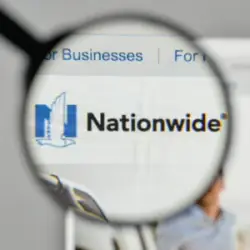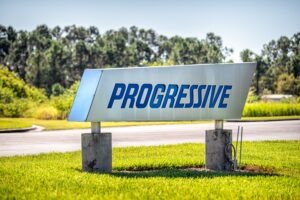
Call (800) 863-5312 to Speak with Denver Injury Lawyers for Free
Currently ranked as the seventh largest homeowners insurer and eighth largest automobile insurer in the United States, Nationwide is one of the most popular insurance providers in the country. Although known for its catchy “Nationwide is on your side” jingle, it is important to realize that it is not always in the company’s best interests to be “on your side.”
In order to secure profits, Nationwide, like other insurance companies, utilizes a variety of strategies designed to ensure a steady flow of revenue. This means that Nationwide follows procedures intended to keep money in the company’s pockets and out of the claimant’s.
If you or a loved one has been injured in an accident, call Zinda Law Group at (303) 225-9846 for a free consultation with Denver accident lawyers.
For a free legal consultation, call 800-863-5312
How Nationwide Negotiates Claims
After Nationwide’s claims adjusters calculate the amount of damages a personal injury claim warrants, the company’s initial offer will often include a figure substantially lower than what the claimant is entitled to. Despite this disappointing reality, hope should not be lost; alternative options and counter-strategies do exist, particularly the claimant’s ability to negotiate the claim amount.
It is thus imperative to understand the nuances of the claim negotiation process. By doing so, you will put yourself in an optimal position to ensure that Nationwide awards you an amount that you deserve.
How to File a Claim
The first step to negotiating an injury claim with Nationwide is to actually report your injury and file a claim. After doing so, you should collect and organize all documentation relating to the incident. The more thorough and comprehensive the documentation is, the better position you will be in when it comes to negotiating your claim.
If possible, you should gather:
- Police reports
- Medical and repair bills
- Photos of the injury or damage
- Photos of the scene of the accident
- Witness statements; and
- Estimates of lost wages.
Compiling these documents into an organized file will serve to not only strengthen your case but relieve much of the stress involved in the negotiating process. Once gathered, send the documentation to Nationwide along with a corresponding demand letter.
The letter should include an overview of the incident as well as references to the documentation, particularly with respect to the injuries sustained as well as any bills incurred. You may or may not choose to include a demand amount. If stating a requested amount, be sure to set the figure high enough to allow for some wiggle room, though not high enough to the point of absurdity.
Alternatively, you may choose to send just the documentation, thereby allowing Nationwide to make the first move. Regardless of the route chosen, you can expect Nationwide’s initial offer to be lower than the claim’s actual worth. Nationwide uses this low-balling tactic hoping that claimants, desperate for a quick buck, will simply accept the offer. However, this initial figure is seldom the only offer that Nationwide is willing to make.
With this in mind, you should not hesitate to explicitly reject any unfair offer by making a counteroffer. This can be accomplished by writing a letter to the claims adjuster. In the letter, explain why you are rejecting the offer, referring back to your documentation in support of your position. If you first requested a particular amount in your demand letter, the counteroffer should be marginally reduced in order to show Nationwide your willingness to negotiate.
This offer-counteroffer process will kick start negotiation which can, if executed diligently and patiently, conclude with you receiving fair compensation. Defend your position throughout the process by emphasizing and reemphasizing the severity of the incident, the extent of your injuries, and how those injuries will impact your life both physically and mentally. Again, you should refer to any relevant documentation whenever possible in order to support your demands.
Utilizing this evidence will make it very difficult for adjusters to low-ball you. Ideally, you and Nationwide will reach a figure that is satisfactory for both parties. If this occurs, confirm the agreement with Nationwide in writing. If, however, an agreement is not reached, you may need to explore the possibility of filing a personal injury lawsuit. In any event, it is important to remember that the negotiation process will require you to remain diligent, patient, and persistent. By adhering to this mindset, you will be placing yourself in the best position to recover an amount that you deserve.
Click to contact our personal injury lawyers today
Our Denver Injury Lawyers Can Help
Negotiating on your own behalf can be very emotional. You are asking for damages for your injuries, and it can be very hard. Sometimes, the best course of action may be to seek help from a personal injury attorney who has a record of success in representing auto accident victims. Our car accident attorneys have years of experience advocating for auto injury victims and their families.
At Zinda Law Group, our skilled personal injury lawyers will provide you legal advice while working diligently to reach a fair and just resolution of your claim. Contact us at (303) 225-9846 today to schedule a free consultation and learn how we can potentially help you with your auto accident claim.
Meetings with attorneys by appointment only.
Call or text 800-863-5312 or complete a Free Case Evaluation form










